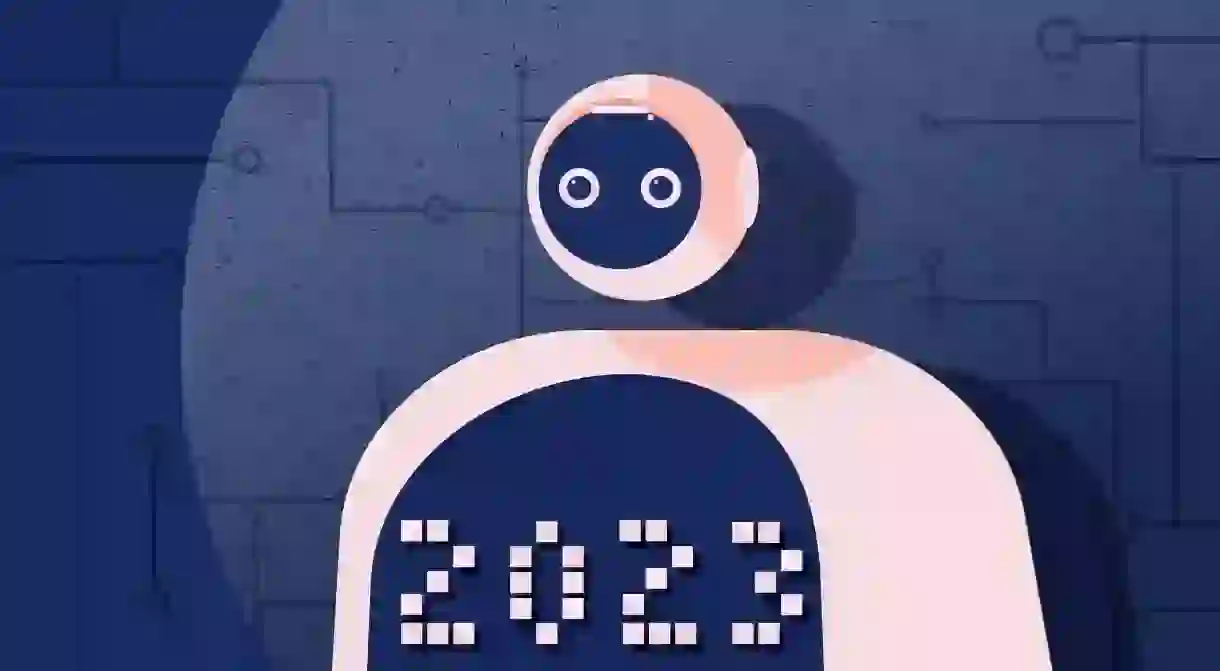Five Tech Trends That Will Change the World in the Next Four Years

From virtual ‘patients’ training doctors and nurses in remote hospitals around the world to fridges that automatically order more milk when you are running low, emerging tech innovations are changing the way we live, work and play. These are the trends set to make the biggest impact by 2023.
Smart homes will streamline domestic life
Smart devices capable of learning from and adjusting to households’ habits, patterns and preferences will soon streamline domestic life in homes around the world.
Expect to see TVs that automatically adjust colour and sound settings based on what they’re streaming, food-recognising countertop ovens capable of identifying dishes and cooking them to perfection, smart fridges that know when products like milk or eggs are running low and automatically order more. Intelligent mirrors will use augmented reality to offer virtual clothes fittings, while washing machines will know the perfect setting for every load.

Wellbeing will be wired
While health tech today is primarily associated with wearable gadgets that measure step counts and blood pressure, it will soon revolutionise healthcare from diagnosis to treatment.
At Four Years From Now (4YFN), a start-up conference held each year in Barcelona, entrepreneurs put their healthcare solutions on show. Standout innovators include Curefun, a China-based artificial intelligence (AI) company working to address the healthcare inequality between the country’s rural and urban areas by creating virtual patients to train doctors and nurses outside China’s biggest cities. Meanwhile, Spanish start-up Intelligent Pharma is focused on the research and development of new AI technologies geared towards pharmaceutical discovery.
AI will be everywhere
The age of artificial intelligence has arrived, and four years from now its impact will be felt in nearly every aspect of our day-to-day lives.
AI’s main use will be to draw conclusions and make predictions about behaviour, preferences and habits in order to make recommendations or offer services. Barcelona-based start-up Badi is using its AI to pair flatmates according to their interests, personalities and lifestyle, while travel start-up Activa scans millions of consumer reviews from around the web to offer travellers personalised restaurant and hotel recommendations.

Shared electric vehicles will transform city transport
As cities around the world strain under the weight of overpopulation, pollution and environmental concern, shared electric transport will gain popularity.
Four Years From Now ‘Startup of the Year’ finalist Scoot Networks’ Scoot app provides shared electric vehicles on demand, including bicycles and motorcycles. “Shared electric vehicles are a leapfrog technology that will change transportation the way mobile phones changed communication – especially in the developing world,” says Scoot founder Michael Keating.
Like mobile phones, shared electric scooters or bikes can be used anywhere in the city, not just to go from station to station. And like mobile phones, these vehicles are personal – capable of taking people exactly where they need to go. They can be deployed immediately, improving access to transportation more quickly than any other mode available. And, because the vehicles are individual-size, they can run on batteries that can be exchanged on the spot rather than plugged into a charging station for hours.

Countries will be cashless
Cards and electronic transfers are replacing physical money, and countries around the world are currently on course to be cashless in four years’ time.
In Sweden today, just 1 percent of the value of all payments is made using coins or notes, while busses in London and other European cities have already banned cash payments in favour of contactless bank-card or mobile payments like Apple Pay. As associated technologies, including mobile card readers, allow market vendors, street buskers and even the homeless to accept plastic donations, the move away from cash will continue to gather pace.













